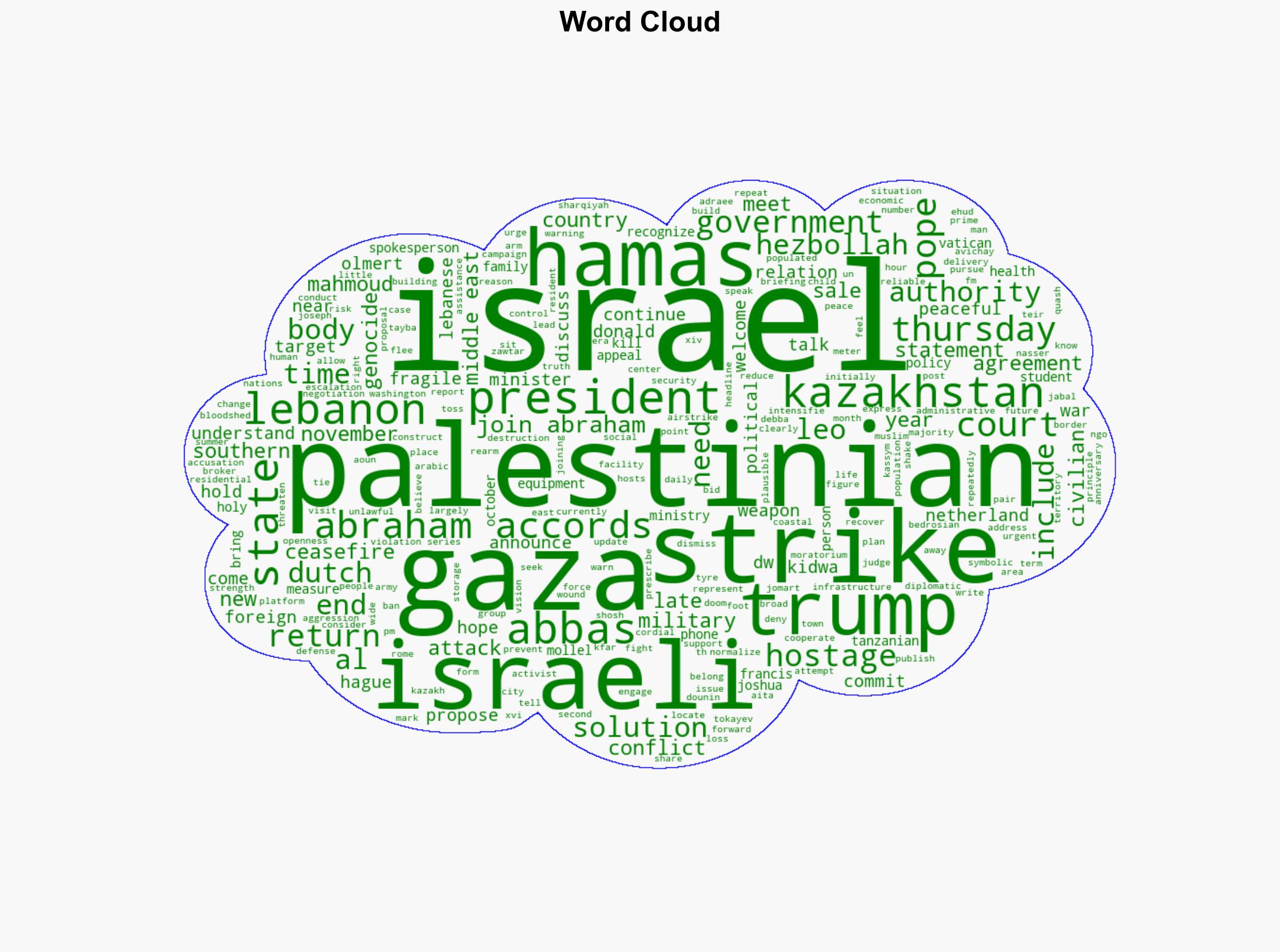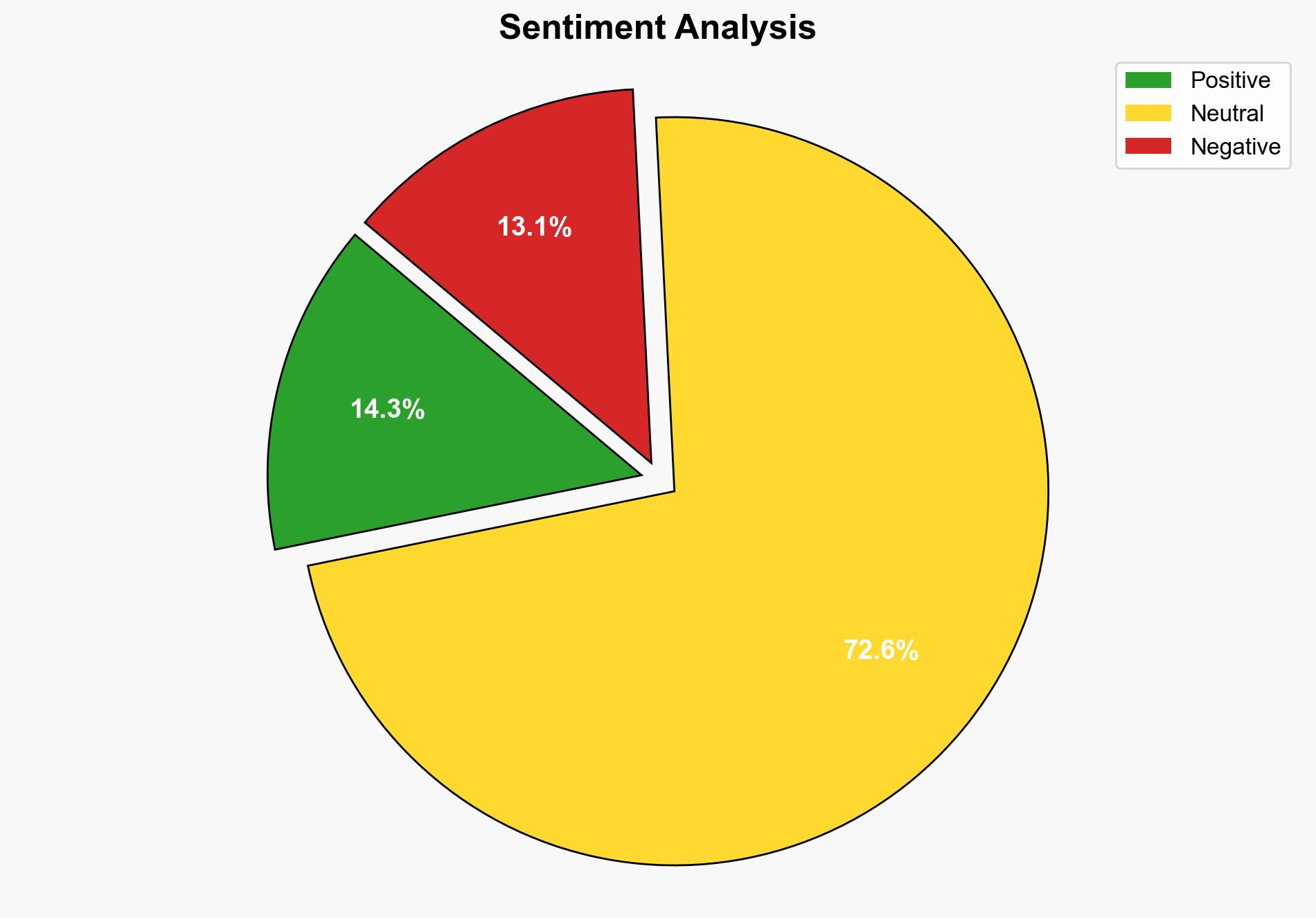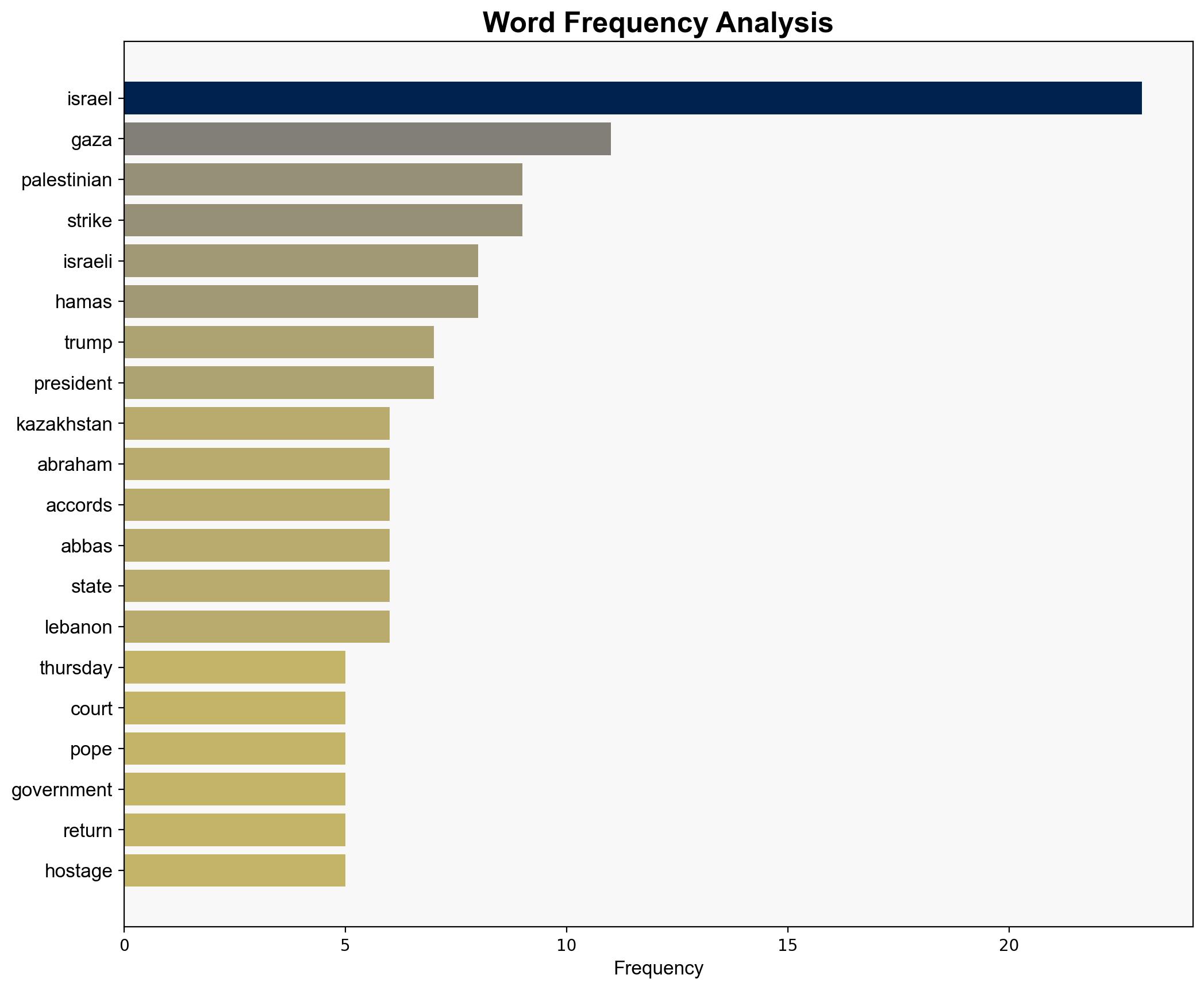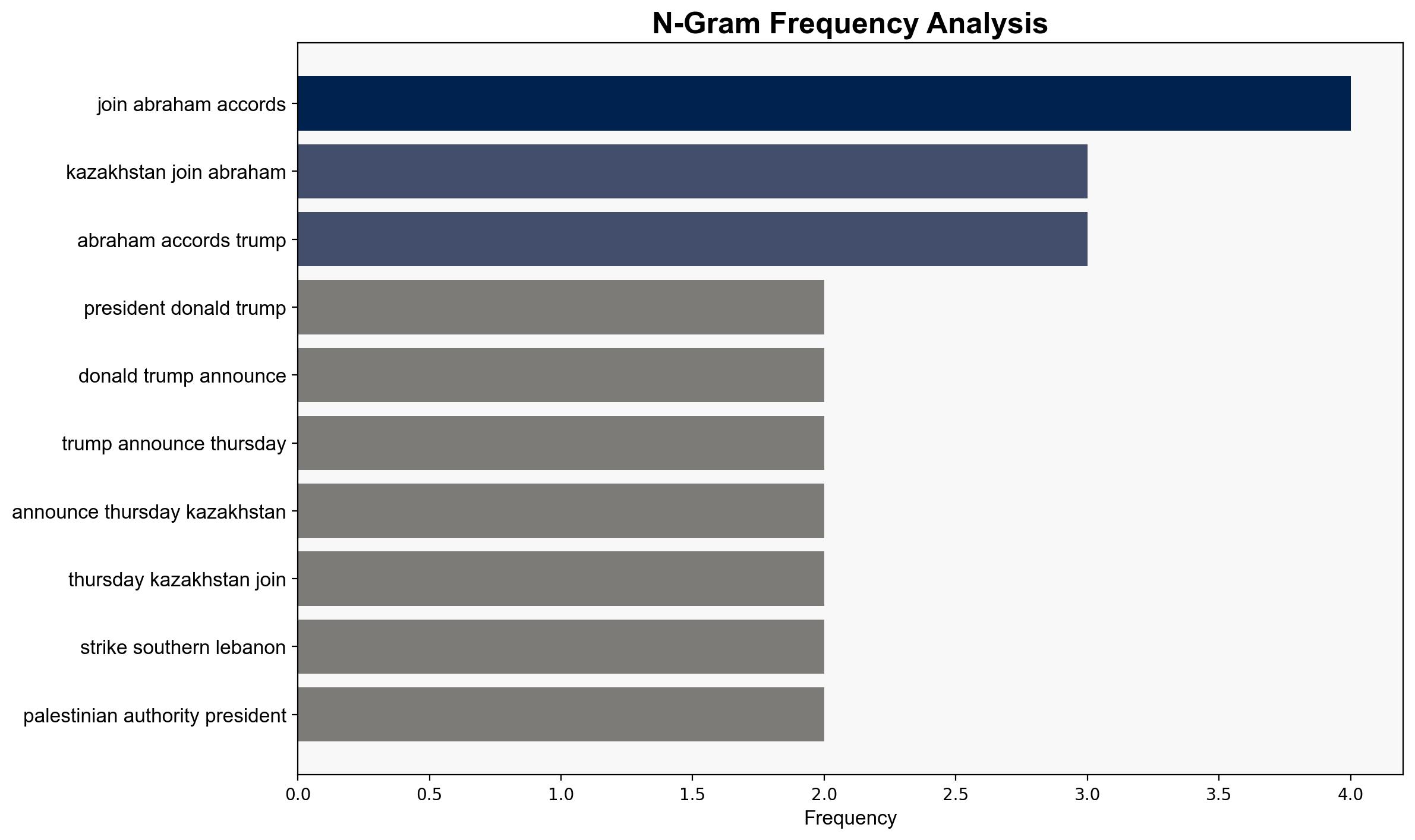Middle East Kazakhstan joining Abraham Accords Trump says – DW (English)
Published on: 2025-11-07
Intelligence Report: Middle East Kazakhstan Joining Abraham Accords Trump Says – DW (English)
1. BLUF (Bottom Line Up Front)
Kazakhstan’s potential joining of the Abraham Accords, as announced by Donald Trump, could be largely symbolic but may also signal a shift in regional alliances. The most supported hypothesis is that this move is primarily diplomatic, aimed at strengthening Kazakhstan’s ties with the West and Israel. Confidence level: Moderate. Recommended action: Monitor Kazakhstan’s diplomatic engagements and assess regional reactions to anticipate shifts in Middle Eastern alliances.
2. Competing Hypotheses
1. **Diplomatic Symbolism Hypothesis**: Kazakhstan’s joining of the Abraham Accords is primarily symbolic, intended to enhance its diplomatic stature and economic ties with Israel and the West.
2. **Strategic Realignment Hypothesis**: Kazakhstan’s decision reflects a strategic realignment towards Western and Israeli interests, potentially at the expense of its traditional alliances with Russia and China.
Using ACH 2.0, the Diplomatic Symbolism Hypothesis is better supported due to Kazakhstan’s existing diplomatic relations with Israel and its ongoing talks in Washington, which suggest a focus on enhancing international ties rather than a fundamental realignment.
3. Key Assumptions and Red Flags
– **Assumptions**: It is assumed that Kazakhstan’s decision is voluntary and not influenced by external pressures. It also assumes that Kazakhstan’s relations with Russia and China will remain stable despite this move.
– **Red Flags**: Lack of official confirmation from Kazakhstan raises questions about the authenticity of the announcement. The potential for misinterpretation of Kazakhstan’s intentions by regional powers could lead to diplomatic tensions.
4. Implications and Strategic Risks
– **Geopolitical Implications**: Kazakhstan’s move could encourage other Central Asian countries to consider similar diplomatic engagements, potentially altering regional dynamics.
– **Strategic Risks**: Misinterpretation by Russia or China could lead to strained relations, impacting Kazakhstan’s economic and security landscape. There is also a risk of increased regional tensions if perceived as aligning too closely with Western interests.
5. Recommendations and Outlook
- Monitor Kazakhstan’s diplomatic activities and statements for further clarification of its intentions.
- Engage in dialogue with regional stakeholders to mitigate potential misunderstandings and maintain stability.
- Scenario Projections:
- **Best Case**: Kazakhstan successfully enhances its international standing without alienating key regional partners.
- **Worst Case**: Diplomatic fallout with Russia and China leads to economic and security challenges.
- **Most Likely**: Kazakhstan’s move is seen as a diplomatic gesture with limited immediate impact on regional alliances.
6. Key Individuals and Entities
– Donald Trump
– Kassym-Jomart Tokayev
– Ehud Olmert
– Nasser al-Kidwa
7. Thematic Tags
national security threats, regional diplomacy, Middle East alliances, geopolitical strategy





